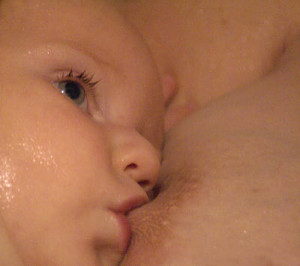Posts Tagged ‘brain development’



TWO GREAT GUIDELINES FOR DIGITAL MASTERY
As with most of the principles and ideas in my book, these are oh-so-simple, but not always oh-so-easy!
1: Don’t Use Your Device While Doing Anything Else
To me this seems like a no-brainer, but that turns out to be a highly old-fashioned attitude. The very portability of our devices reinforces our digital dependence by eliminating virtually all barriers to their use–and voilá, a feed-forward loop that has established habitual multi-tasking device usage as the new normal in less than a decade.
Indeed, it wasn’t even ten years ago when you had to go to your desk… or at best to your laptop, sitting over there… to check your email, play solitaire or do that IMDb search. Doing those things was an activity in itself. (more…)
Tags: brain development, children, digital-dependence, handheld devices, mastery, smartphones, technology
Posted in Parenting for Peace | No Comments »
 Are you quietly (or not-so-quietly) dreading your child’s school summer vacation — wondering how you’re going to fill the vast expanses of hot days with “bored” kids? How you’re going to stick to your values about screened media, while retaining your sanity? Oh, and by the way, hopefully enjoying some semblance of calm and enJOYment?!
Are you quietly (or not-so-quietly) dreading your child’s school summer vacation — wondering how you’re going to fill the vast expanses of hot days with “bored” kids? How you’re going to stick to your values about screened media, while retaining your sanity? Oh, and by the way, hopefully enjoying some semblance of calm and enJOYment?!
Here are five guidelines to help you not just survive summer, but actually cultivate more ease & harmony as you “wire” yourself and your children for joy & wellbeing in the coming year!
Before reading more about these Summer-Sanity ideas at mothering.com, here’s a little “secret tip” that will help ensure the success of any routine you come up with — for summer or anytime!
Okay, let me at those ideas!! mothering.com
Image:
sachatrtl Flickr | Creative Commons
Tags: brain development, summer activities, summer boredom, summer school, summer vacation, tutoring
Posted in Parenting for Peace | No Comments »
 Call me an old fart, but I’m not a fan of new-fangled, ring-ding-dang educational toys. My recommendation to parents always is, don’t easily trust the (sometimes wacko) things that our culture takes for granted are great for kids. Err on the side of “First, do no harm.” Trust your inner knowing and common sense, not the zeitgeist.
Call me an old fart, but I’m not a fan of new-fangled, ring-ding-dang educational toys. My recommendation to parents always is, don’t easily trust the (sometimes wacko) things that our culture takes for granted are great for kids. Err on the side of “First, do no harm.” Trust your inner knowing and common sense, not the zeitgeist.
Children need “real time” experiences, which can be best happen with simple objects that most people wouldn’t call toys, let alone educational toys! {Read the rest… including 3 fail-safe guidelines for choosing brain-building toys… at mothering.com}
Image:
John-Morgan | Flickr / Creative Commons
Tags: Baby Einstein, brain development, Julia Aigner-Clark, toys, wonder
Posted in Parenting for Peace | No Comments »
 There has been a hurricane of cyber-buzz this past week over a HuffPo piece entitled, “10 Reasons Why Handheld Devices Should Be Banned for Children Under the Age of 12.” It went viral, natch.
There has been a hurricane of cyber-buzz this past week over a HuffPo piece entitled, “10 Reasons Why Handheld Devices Should Be Banned for Children Under the Age of 12.” It went viral, natch.
What I want to say about that piece is
a) it is a comprehensive collection of research that should be of critical interest to parents
b) I am not the type to seek bans on such things; rather, I advocate that we as humans develop mastery and dominion over these creations of ours. Let our Frankenstein’s monsters work for us rather than against us.
As my daughter Eve once said, “We’ve all been baptized in technology.” Boy, did that spin me around and send me thinking. I wrote the following Parenting for Peace passage in reference to birth technology, but it totally applies to these questions about handheld devices:
Yes, most of us have been baptized in technology, so let us embrace the blessings of our modern brilliance, which was originally meant to bring freedom. Nothing has the power to control us once we can name the players and the game, once we can free ourselves from the prevailing fear-based group think and become capable of making choices that are in the best peacemaking interests of ourselves, our children, and the vibrant future of humanity.
{Read more about this debate at mothering.com}
Image:
sonyanews, through its Creative Commons license
Tags: brain development, handheld devices, psychosocial development, Siri, social intelligence, technology
Posted in Parenting for Peace | No Comments »
 Gone are the days when we could consider pregnancy a 9-month “grace period” before the job of parenting begins. Mounting research tells us that lifelong wellbeing, including mental health, begins in the womb, and everything parents do – beginning even before conception — shapes their children in critical, life-altering ways.
Gone are the days when we could consider pregnancy a 9-month “grace period” before the job of parenting begins. Mounting research tells us that lifelong wellbeing, including mental health, begins in the womb, and everything parents do – beginning even before conception — shapes their children in critical, life-altering ways.
I began last year by writing about the power of beginnings. This year I invite us to recognize that this applies to virtually everything, from baking a pie to building a company to developing a human: the beginning contains within it the seeds of the project’s ultimate success…or less-than-success. {Read more}
Tags: autism, brain development, fetal origins, oxytocin, pregnancy, prenatal development, prenatal epigenetics, stress
Posted in Parenting for Peace | No Comments »
 Don’t get me wrong — I’m a huge fan of breastfeeding. I devote swaths of print in Parenting for Peace to the reasons and ways it contributes to raising a peaceful (i.e., empathic, innovative, flexible, self-regulating, and yes, intelligent) generation. But I frankly get annoyed when media trumpets the connection between breastfeeding and IQ, when it is social intelligence we desperately need for the survival of our human family! {Read more at mothering.com}
Don’t get me wrong — I’m a huge fan of breastfeeding. I devote swaths of print in Parenting for Peace to the reasons and ways it contributes to raising a peaceful (i.e., empathic, innovative, flexible, self-regulating, and yes, intelligent) generation. But I frankly get annoyed when media trumpets the connection between breastfeeding and IQ, when it is social intelligence we desperately need for the survival of our human family! {Read more at mothering.com}
Tags: Baby Einstein, brain development, breastfeeding, Dimitri Christakis, intelligence
Posted in Parenting for Peace | No Comments »
 We humans are rhythmic creatures. At least that’s how we’re meant to be. It’s why Rhythm is one of the seven Parenting for Peace principles. It is a gift for our children and ourselves to embrace life’s ebbing and flowing. Summertime offers us a luscious opportunity for slowing the pace of life.
We humans are rhythmic creatures. At least that’s how we’re meant to be. It’s why Rhythm is one of the seven Parenting for Peace principles. It is a gift for our children and ourselves to embrace life’s ebbing and flowing. Summertime offers us a luscious opportunity for slowing the pace of life.
“As biologists have learned in the past decade,” writes author Jennifer Ackerman, “time permeates the flesh of all living things — and for one powerful reason: We evolved on a rotating planet.”[1] She observes the many ways in which we carry inside us a model of the cosmos. Our entire being is steeped in various rhythms: respiration, circulation, digestion, elimination just to name a few.
So no wonder we find rhythmicity so nourishing. The young child most especially thrives on rhythmic routine, consistency and predictability. It weaves a sense of security into the fiber of his very cells as they are busy building brain and organ tissue. Ideally, rhythm permeates the child’s daily, weekly and even seasonal life. Meals and bedtimes are consistent and regular. Activities at home as well as outings take on the predictability of ritual, which the child can count on and keep a sort of internal beat to: “This is when we eat, this is when we nap, this is when we have play time… Tuesdays we go to the park, Wednesdays we go to the Farmer’s Market, Sunday we visit Grandma… and summer is beach time! {Read the rest of this post at mothering.com}
[1] Ackerman, Jennifer. Sex Sleep Eat Drink Dream: A Day in the Life of Your Body. New York: Houghton Mifflin, 2007, pg. 8.
Image:
Petrov Escarião under its Creative Commons license
Tags: brain development, Martha Beck, Michael Coyle, rhythm, Shawn Fink, summer, summer camp, summer school, tutoring
Posted in Parenting for Peace | No Comments »
We tend to throw around the word “attachment” a lot when talking about kids and parenting, so let’s make sure we’re all talking about the same thing: attachment is a measure of the security of relationship between a child and those one or two or three adults with whom that child is in consistent contact. We now recognize that healthy (secure) attachment is a fundamental form of nourishment for a child’s growing brain. In particular, attachment fosters rich circuitry in the area of the brain that mediates social and emotional functioning. A parent’s ability to be present for a child is fundamental to fostering this brain circuitry needed to regulate attention — therefore, basic ADHD treatment. Mounting research suggests that the social brain is the basis for the child’s lifelong success — in school, at home, and out in the world! (more…)
Tags: ADD, adhd, attachment, brain development, Dan Siegel, Gabor Mate, presence, social brain
Posted in Parenting for Peace | 2 Comments »
 So there you are one afternoon, at the end of your rope with an out-of-control three-year-old. You know you won’t spank him, and you have become mindful of avoiding shame-based measures, so what’s left? Is “Time Out” the answer? At risk of bringing on the wrath of parents everywhere, my answer is no. Time-outs were conceived as a more humane alternative to spanking, but the problem is, they land a blow to the brain and psyche rather than to the bottom.
So there you are one afternoon, at the end of your rope with an out-of-control three-year-old. You know you won’t spank him, and you have become mindful of avoiding shame-based measures, so what’s left? Is “Time Out” the answer? At risk of bringing on the wrath of parents everywhere, my answer is no. Time-outs were conceived as a more humane alternative to spanking, but the problem is, they land a blow to the brain and psyche rather than to the bottom.
Right at the moment when the child is overwhelmed by a flood of emotions he cannot manage, and he most needs the regulating presence — that is, close physical presence — of his attachment figure, he’s banished to his room or his “Naughty Chair” or his “Thinking Rug” or his [fill in the blank with any of a list of prettied-up names people have devised for this particular form of exile]. (more…)
Tags: attachment, brain development, discipline, Gordon Neufeld, shame, social brain, spanking, time-out
Posted in Parenting for Peace | No Comments »

Yes, that’s really Ian!
Yes, I spanked my son. It was almost twenty years ago but I still remember it vividly. Ian was six or seven and was stubbornly, defiantly ignoring me right to my face. (About what? Now that I cannot recall!) Something primitive inside me uncoiled and I was suddenly spanking him. I regretted it immediately and ever since — not just for the obvious reason of having been violent with him, but also for the sliver of his respect I lost in that moment.
We lose the admiration of our children when we “lose it.” It’s a mammalian thing: all animal behaviorists know that our ability to have authority over — and thus the ability to train — a dog or a horse is severely eroded if the animal sees or feels us get angry. Credible leaders don’t lose their composure, it’s as simple as that. Of course children aren’t dogs, but we can learn so much from understanding the mammalian similarities! Our children’s respect and admiration are among the most potent tools in our parenting toolbox, and if we do things to erode them, we set ourselves up for trouble down the line. (more…)
Tags: brain development, imitation, spanking
Posted in Parenting for Peace | 2 Comments »
![]()

![]()



 Gone are the days when we could consider pregnancy a 9-month “grace period” before the job of parenting begins. Mounting research tells us that lifelong wellbeing, including mental health, begins in the womb, and everything parents do – beginning even before conception — shapes their children in critical, life-altering ways.
Gone are the days when we could consider pregnancy a 9-month “grace period” before the job of parenting begins. Mounting research tells us that lifelong wellbeing, including mental health, begins in the womb, and everything parents do – beginning even before conception — shapes their children in critical, life-altering ways. Don’t get me wrong — I’m a huge fan of breastfeeding. I devote swaths of print in Parenting for Peace to the reasons and ways it contributes to raising a peaceful (i.e., empathic, innovative, flexible, self-regulating, and yes, intelligent) generation. But I frankly get annoyed when media trumpets the connection between breastfeeding and IQ, when it is social intelligence we desperately need for the survival of our human family!
Don’t get me wrong — I’m a huge fan of breastfeeding. I devote swaths of print in Parenting for Peace to the reasons and ways it contributes to raising a peaceful (i.e., empathic, innovative, flexible, self-regulating, and yes, intelligent) generation. But I frankly get annoyed when media trumpets the connection between breastfeeding and IQ, when it is social intelligence we desperately need for the survival of our human family!  We humans are rhythmic creatures. At least that’s how we’re meant to be. It’s why Rhythm is one of the seven Parenting for Peace principles. It is a gift for our children and ourselves to embrace life’s ebbing and flowing. Summertime offers us a luscious opportunity for slowing the pace of life.
We humans are rhythmic creatures. At least that’s how we’re meant to be. It’s why Rhythm is one of the seven Parenting for Peace principles. It is a gift for our children and ourselves to embrace life’s ebbing and flowing. Summertime offers us a luscious opportunity for slowing the pace of life. So there you are one afternoon, at the end of your rope with an out-of-control three-year-old. You know you
So there you are one afternoon, at the end of your rope with an out-of-control three-year-old. You know you 


